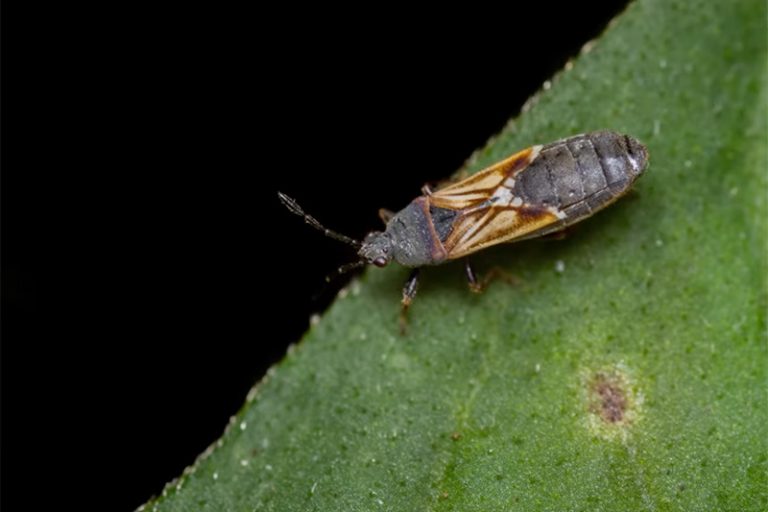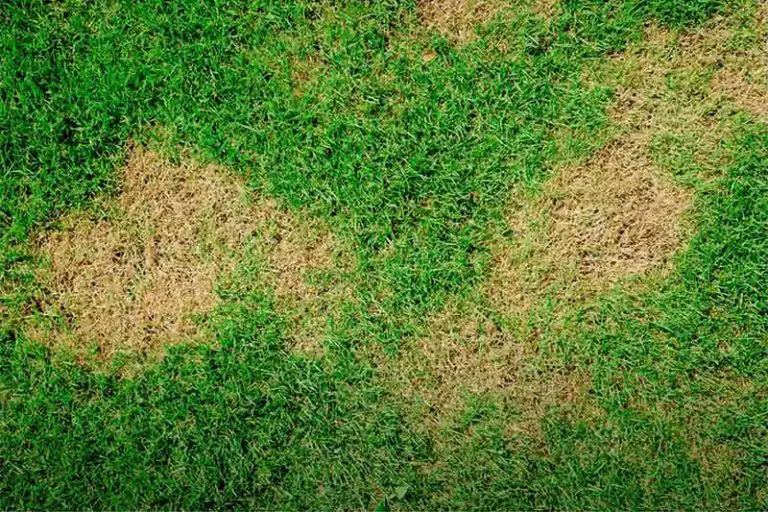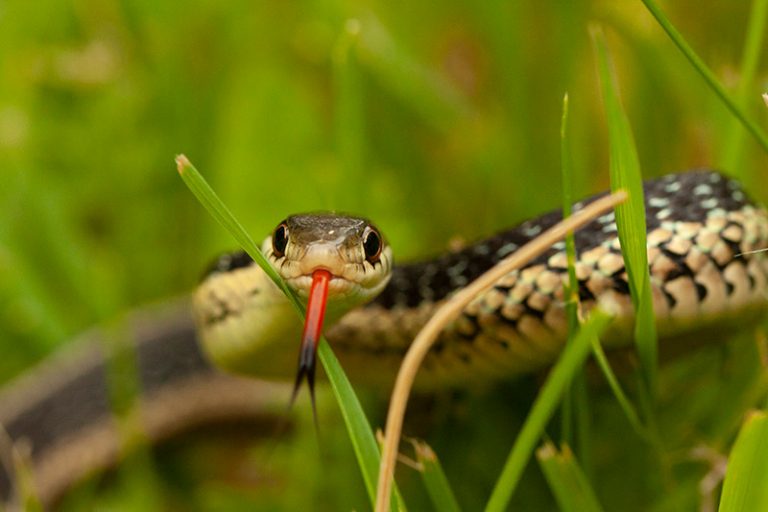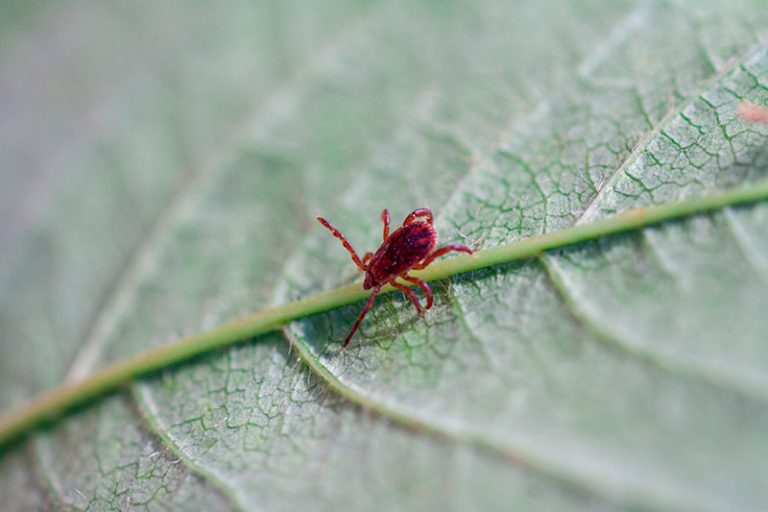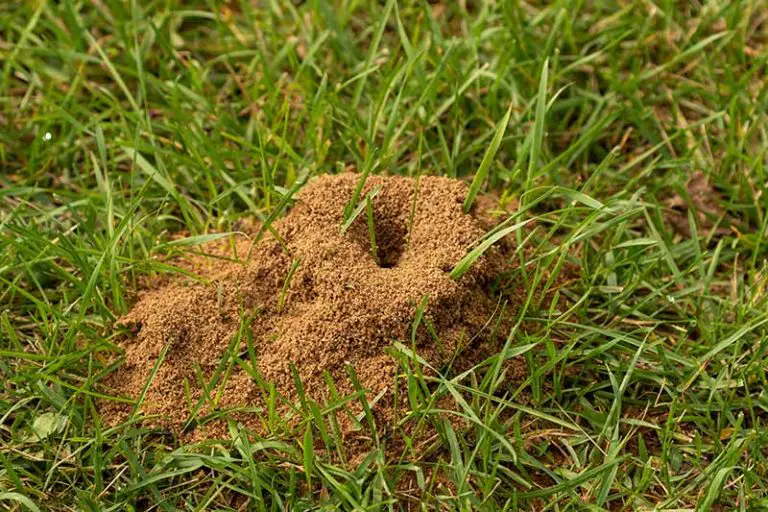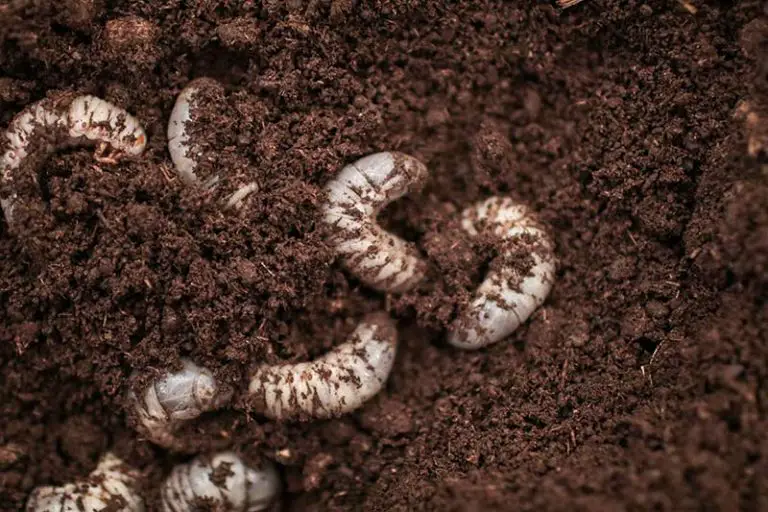How to Get Rid of Mosquitoes in Yard
It can be difficult to relax in your backyard when you’re being plagued by a hoard of persistent and blood-hungry mosquitoes. If you’re tired of dealing with these miniature pests, you can take some measures to get rid of mosquitoes from your yard and keep them away for good.
In order to get rid of mosquitoes, there are a few active measures you can take, including using a chemical mosquito repellant, setting up a bug zapper, mosquito traps, or a Thermacell, or the strategic use of oscillating fans. To keep mosquitoes away for good, you can eliminate or treat any sources of standing water, maintain your yard properly, and plant mosquito-repellant plants.
This guide explains the conditions that attract mosquitoes to your yard, followed by tips on how to get rid of mosquitoes and keep them away from your yard.
What Are Mosquitoes?
Mosquitoes are small, flying insects, commonly found in countries all over the world. There are over 3,500 subspecies of mosquitoes worldwide, with 176 different species found in the US. The state with the least species is West Virginia, at 26, while Texas is home to the most species at 85.
Although these creatures are infamous for their bites, not every type of mosquito bites humans or animals. Among the species that do, it’s only the female mosquitoes that bite, while the males feed on nectar and plant juices. The females of biting species consume blood in order to be able to produce eggs.
The bites that they leave behind are often itchy, painful, and irritating. On top of this, some mosquitoes are known as vectors; a vector is any animal, tick, or insect that spreads illnesses to people or other animals through germs or parasites. While mosquito bites are relatively harmless, they can spread much more serious illnesses and diseases to their human or animal hosts.
Types of Mosquitoes
In the US, mosquitoes fall under one of two categories: nuisance mosquitoes and vector mosquitoes. In short, vector mosquitoes are those that carry and spread illnesses through their bite, while nuisance mosquitoes don’t.
Nuisance Mosquitoes
Nuisance mosquitoes are those that bite but don’t spread the germs or parasites that make people ill. In the US, nuisance mosquitoes account for about 188 of the 200 species that live in the country. I.e., the majority of mosquito bites are relatively harmless and won’t cause any major illnesses beyond an itchy, irritating welt.
Nuisance mosquitoes tend to be most problematic immediately after periods of wet weather like heavy rains, hurricanes, or floods. You’re most likely to be bitten by a nuisance mosquito when spending time outside after weather such as this.
Vector Mosquitoes
Vector mosquitoes are the insects that carry the germs or parasites that cause illness in people or animals.
There are 12 known vector species out of the 200 types of mosquitoes that live in the US. The most common types of mosquito that spread illnesses in this country are:
Aedes Species Mosquitoes
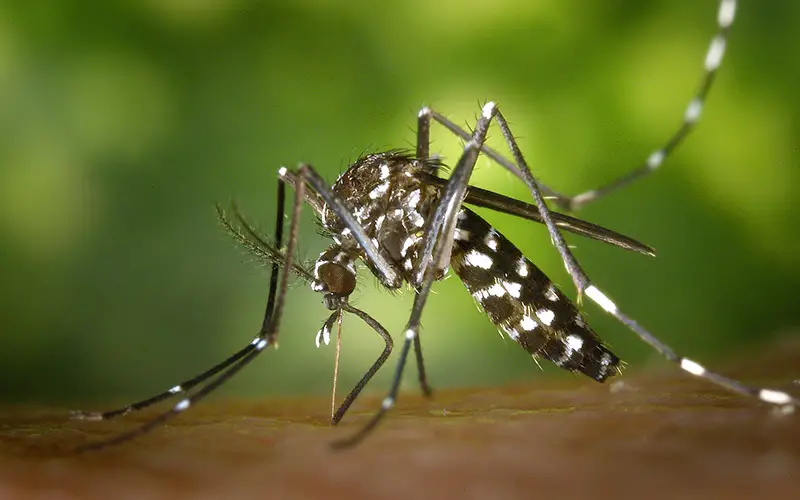
Where They Lay Eggs: Aedes mosquitoes lay eggs on or close to the surface of temporary sources of water, such as flower pots, pools, used tires, and roof tanks. The eggs are singular.
Where Found in US: Throughout the East Coast, Midwest, Pacific Northwest, and the South.
Bite: Aedes mosquitoes are unlike typical mosquitoes as they bite during the day. They prefer human hosts.
Diseases Transmitted: Zika, Dengue, Chikungunya, Yellow Fever.
Culex Species Mosquitoes
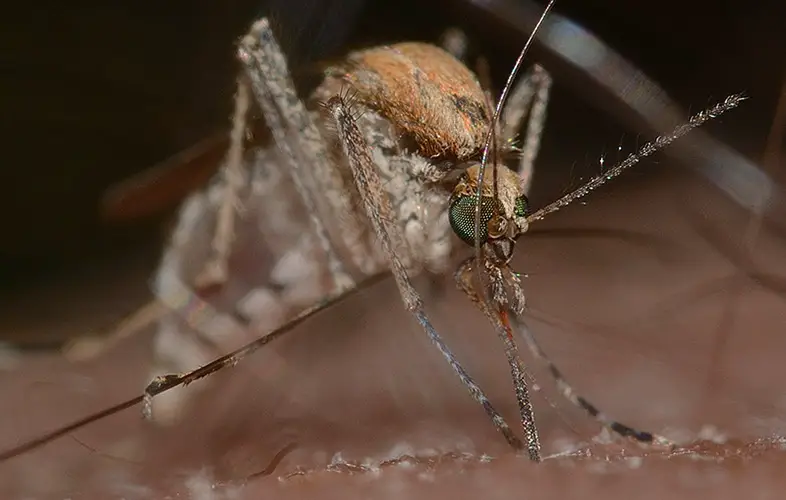
Where They Lay Eggs: Culex mosquitoes lay their eggs in artificial containers of water or polluted freshwater sources. The eggs sit in rafts on the surface of the water.
Where Found in US: Throughout the US.
Bite: Culex mosquitoes typically bite at night, in both indoor and outdoor spaces. They prefer birds as hosts, but they like to bite humans as well.
Diseases Transmitted: West Nile Virus, Western/Eastern Equine Encephalitis.
Anopheles Species Mosquitoes
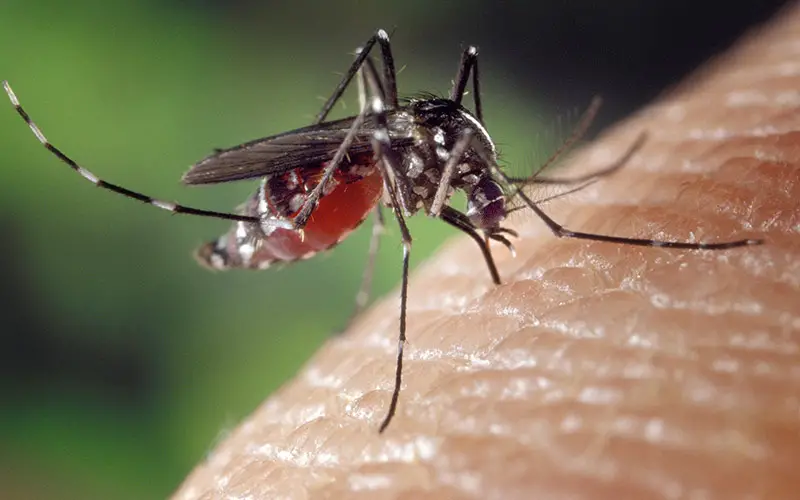
Where They Lay Eggs: Anopheles mosquitoes lay their eggs on natural, vegetated bodies of water like ponds, marshes, and swamps. The eggs float on the surface of the water.
Where Found in US: Eastern and Western States.
Bite: Anopheles mosquitoes typically bite between dusk and dawn, both indoors and outdoors. They prefer humans or mammals as hosts.
Diseases Transmitted: Malaria.
When Do Mosquitoes Come Out?
The time of year that mosquitoes come out depends on the climate conditions of the area they’re in. Generally speaking, all species of mosquitoes prefer warmer weather and will come out when temperatures rise above 40°F. This marks the beginning of ‘mosquito season’ for your area.
However, mosquitoes’ lifecycles and habitats differ slightly species-to-species; some species of mosquito emerge from hibernation in spring, while others hatch from eggs that were laid the season before. In warmer regions that have consistently high temperatures throughout the year, mosquitoes are constantly active all year round.
When Are Mosquitoes Most Active?
Mosquitoes are most active when temperatures reach over 70°F. They have a preference for moist, humid weather, as these are the conditions ideal for breeding. For this reason, areas that experience warm temperatures combined with heavy rainfall will see an increased amount of mosquito activity.
In terms of the time of day, mosquitoes are most active during the earlier hours of the morning and in the evening. This is when air temperatures are cooler and the sun hasn’t fully risen; mosquitoes prefer these times as they are very vulnerable to becoming dehydrated in direct sunlight.
When Do Mosquitoes Go Away?
Mosquitoes go away when temperatures drop below 40°F. This is when mosquito season in your region officially ends.
When is Mosquito Season in My Region?
As explained in the previous sections, mosquito season in your region depends on what time of year temperatures are consistently above 40°F. In the US, this varies somewhat, as outlined below:
Gulf Coast, Florida, & Hawaii
Mosquito season: February to November
The warm, wet, and humid climate conditions in this region equate to a longer mosquito season. This region includes Alabama, Florida, Hawaii, Louisiana, and Mississippi.
South & Southwest
Mosquito season: March to September
The warm temperatures in this region cause mosquito season to start a little earlier than most others, lasting throughout most of the year. This region includes Alabama, Arizona, Georgia, Louisiana, Mississippi, New Mexico, Northern Texas, Southern California, Tennessee, South Carolina, and some coastal areas in North Carolina.
Mid-Atlantic, Midwest, and West
Mosquito season: April to September
This region experiences a shorter mosquito season than others due to the milder annual temperatures. The majority of US states are in this region, including California, Colorado, Illinois, Kansas, Kentucky, Maryland, Pennsylvania, Missouri, Nebraska, Nevada, Ohio, Utah, Virginia, and West Virginia.
New England, Northern Midwest, & Pacific Northwest
Mosquito season: May to September
This region has the coolest temperatures, and therefore experiences the shortest mosquito season in the US. This includes Massachusetts, Michigan, Minnesota, Montana, New Hampshire, Maine, New York, North Dakota, South Dakota, Vermont, Washington, and Wisconsin.
What Attracts Mosquitoes to a Yard?
Standing Water
To mosquitoes, the absolute most attractive elements of a yard are bodies of standing, and ideally stagnant, water. They are drawn to bodies of standing water as this provides them with the perfect place to breed and lay their eggs. The size of the standing water source is irrelevant, as mosquitoes can lay their eggs in as little water as a bottlecap’s worth.
Some of the most common sources of standing water in a yard include:
- Birdbaths
- Buckets
- Flower pots
- Outdoor pet bowls
- Grill covers
- Lids on trashcans
- Tires
- Wheelbarrows
Yard Debris
Having a lot of yard debris will also attract mosquitoes to your property. Mosquitoes hate the wind, so they’ll seek out places that provide them with shelter from the elements. This means yards with overgrown grass or vegetation make a very appealing spot for mosquitoes to hang out.
Some of the types of yard debris that attracts mosquitoes include:
- Tall grass
- Overgrown vegetation or shrubs
- Unkempt natural areas
- Grass clippings
- Piles of leaves
- Piles of twigs, sticks, or branches
- Compost piles
Clogged Gutters
Clogged gutters and drains provide the perfect home for mosquitoes. When you don’t clean your gutters regularly enough, they become blocked with debris like leaves and twigs. This traps water in the gutters and among the matter causing the blockage. Mosquitoes are drawn to this situation as it provides them with both shelter and a source of standing water.
Are Mosquitoes Attracted to Light?
Mosquitoes aren’t necessarily attracted to light in the sense that the brightness draws them in. Like the majority of nocturnal insects, they use light to navigate themselves from one place to another.
They angle themselves towards the closest perceived source of natural light, which in the wild would be the moon and stars. So, when mosquitoes fly near a source of artificial light it disorients them somewhat, making it difficult for them to maintain a good angle of travel. This causes them to fly off course towards the artificial source of light.
How to Get Rid of Mosquitoes in Yard
If you’re currently in the middle of mosquito season, there are a few approaches you can take to get rid of mosquitoes in your yard as detailed below.
Apply Chemical Mosquito Repellant
You can purchase chemical repellants to get rid of mosquitoes. Not only are there products designed to be used on your person, but also those to be used outdoors. These repellants come as foggers, aerosols, or repellant sprays. Some repellants can be sprayed around the perimeter of your yard, lawn, or garden, to provide protection from mosquitoes for up to 8 weeks.
Products containing pyrethrin and pyrethroid are most effective at eliminating the mosquitoes’ breeding grounds. With that said, you should take note that pyrethroid may cause harm to beneficial insects like bees and butterflies – if you choose a spray repellant, apply it just before the sun goes down on days where the weather is still and dry to reduce potential harm. Always read the label of your chosen product carefully for exact safety and application directions.
Set Up Mosquito Traps
Mosquito traps are a low effort way to get rid of mosquitoes from your yard. The traps work by mimicking the presence of CO2, i.e. human breath, to draw the mosquitoes into the trap. The mosquitoes then become trapped by the trap’s mechanism.
In terms of the actual trapping mechanism, there are a few different varieties of mosquito traps commercially available. Some work by trapping them on a sticky glue-covered surface, some dehydrate or drown them, while others use electricity to zap them dead.
Mosquito traps on their own are unlikely to get rid of mosquitoes completely, but they can significantly reduce the number of insects if used strategically around your yard. Place the traps in the shadier parts of your yard where the mosquitoes are likely to congregate. You may need to experiment with your trap placement before you find the optimal spots to trap the pests. Remember to empty your traps regularly to prevent a build-up of mosquito carcasses.
Purchase a Bug Zapper
Bug zappers are an electronic form of mosquito trap. These devices emit a blue, purple, or UV light that insects like mosquitoes fly towards, before getting electrocuted by the device’s electrified element. This method will help to get rid of mosquitoes, but take note that it will likely kill a lot of other beneficial and harmless insects too.
Burn Scented Candles
Burning scented candles can help to get rid of mosquitoes in an outdoor area. Both the fragrance and smoke that scented candles produce act as a natural repellant for many insects, including mosquitoes.
When you’re using your outdoor space, light a few strong-scented candles and place them in and around the area. The best type of candle scent to repel mosquitoes is citronella, however, any strong scented candle like lavender or lemon would also be effective.
Purchase a Thermacell Mosquito Repeller
Thermacell is a company that produces fuel-powered mosquito repellent devices that use repellants to get rid of mosquitoes outdoors. The repellant is made from an ingredient called allethrin, which is a synthetic reproduction of a natural mosquito repellent found in chrysanthemum plants. The device heats up the repellant, dispersing it into the air nearby to create a mosquito-free zone of protection that spans up to 15 feet.
Purchase a Thermacell mosquito repellent device. Insert the mat into the top of the device, then remove the device’s cap to insert the fuel cartridge. Rotate the base of the device past ‘ON’ until it’s set on the ‘START’ option, and click the device 2 to 3 times; you should now be able to see a small glowing orange light indicating the device is on. Place the device in the outdoor area you want to rid of mosquitoes. The device should take effect after about 15 minutes. Rotate the base back to the ‘OFF’ position once finished.
Set Out an Oscillating Fan
Setting up an oscillating fan is a simple but effective solution to get rid of mosquitoes in an outdoor area. Mosquitoes are weak and slow fliers that struggle to fly against a breeze, meaning they don’t stand a chance against the flow of an electric fan. The added benefit of this method is that the fan will help to keep you cool during the summer months.
Set up one or several fans in the outdoor area that you want to rid of mosquitoes. Place the fans strategically so that they will blow air in the opposite direction of the area in question. Once you turn on the fan, the mosquitoes will blow away and won’t be able to return. Remember to bring your fans back indoors if they aren’t specially designed for outdoor use. Also, conserve energy by only turning the fans on when you’re using the outdoor space.
How to Keep Mosquitoes Away From Yard
Use these methods to keep mosquitoes away from your yard for good by making it inhospitable for them.
Eliminate Sources of Standing Water
The most effective method to keep mosquitoes away from your yard for good is to eliminate as many sources of standing water as possible. Mosquitoes seek out bodies of standing water to lay their eggs, needing as little as a bottlecap’s worth. Once they’ve laid their eggs, it only takes about 48 hours before they hatch into a whole new generation of pests.
Survey every part of your yard and pinpoint the standing water sources; this includes puddles, watering cans, and objects around your yard that are collecting water. Empty plant saucers, flower pots, tires, and buckets, and drill holes in the bottom of them to prevent them from filling up with water again. Remember to replace the water in birdbaths and dog bowls daily.
If you have significant puddling or standing water in your yard, you may need to improve your soil drainage. This would involve grading, leveling, aerating, and dethatching your lawn.
Treat Sources of Water
You should treat the sources of standing water that you’re unable to eliminate, such as permanent pools or ponds. For pools, treat the water with a larvicide dunk or liquid larvicide, and remember to run the filter regularly. Keep the pool covered at night and throughout the months that it isn’t in use.
For other types of standing water, you can treat the water with a substance called BTI. This is a bacterium naturally occurring in soil that produces certain toxins that target and kill off mosquito larvae. BTI is non-toxic to humans, fish, or plants, and is suitable to treat water sources like ponds and birdbaths.
Maintain Yard Properly
Mosquitoes have a preference for cool, damp, and dark places that they can settle down in. You can keep them away from your yard by making sure it’s properly maintained; this involves keeping up with a regular mowing schedule, mowing grass to the ideal height for your grass type. You should also keep your shrubs and trees trimmed as short as possible.
Clean Gutters Regularly
Blocked gutters are an ideal nesting place for mosquitoes. If your gutters have filled up with debris they won’t be able to drain properly, providing mosquitoes with the damp and sheltered conditions they need to breed. Clean out your gutters regularly to keep mosquitoes away from your yard and home.
Encourage Presence of Mosquito Predators
You can keep mosquitoes away from your yard by encouraging the presence of some of their natural predators. Birds, fish, and other types of insects all consume mosquitoes as a food source, so these are the types of animals that you should invite into your yard.
The types of birds that prey on mosquitoes include purple martins, swallows, migratory songbirds, and waterfowl. The easiest way to attract these birds to your yard is to set up bird feeders. Bats are also mosquito predators, however, you may want to avoid attracting these creatures close to your home. If you have enough space, set up a bat house at a safe distance away from your property.
The types of insects that like to eat up mosquitoes include spiders and dragonflies. It’s up to you whether you want to encourage the presence of these helpful creepy crawlies.
If you have a pond, fill it with aquatic mosquito predators like koi, goldfish, or red-eared slider turtles.
Use Yellow LED Lights Outdoors
Mosquitoes and other insects are attracted to white, incandescent lighting, as they confuse it for the light of the moon. By using yellow LED ‘bug lights’, you can keep mosquitoes away from your yard. This method doesn’t necessarily repel mosquitoes, but rather keeps them away by removing a source of attraction.
Install Screening or Netting
You can keep mosquitoes away from small outdoor areas by installing mosquito netting or screening. This method is the best way to mosquito-proof outdoor decks, patios, or gazebos.
Use Cedar Mulch in Yard
Spreading cedar mulch in your yard will help to keep mosquitoes away while also improving the condition of your soil. Cedar oil is commonly used as an ingredient in mosquito repellent as it is a natural deterrent to these insects. The mulch element of cedar mulch also helps by soaking up excess moisture, which improves the moisture retention of your soil while discouraging mosquitoes from settling in your vegetation.
Plant Natural Mosquito Repellant Plants
You can keep mosquitoes away from your yard by planting plants that act as natural mosquito deterrents. Not only is this a natural method to repel mosquitoes, but you are also beautifying your yard in the process and making it habitable for other lawn-friendly creatures. See the following section for a full list of plants that repel mosquitoes.
Plants that Repel Mosquitoes
There are a number of plants that you can grow to keep mosquitoes away from your backyard. The plants that repel mosquitoes include:
- Basil
- Catnip
- Citronella
- Dill
- Garlic
- Geraniums
- Lavender
- Lemon balm
- Lemongrass
- Marigolds
- Pennyroyal
- Peppermint
- Rosemary
- Sage
- Tulsi
Any plant that is highly fragrant such as those listed above will help to repel mosquitoes. They avoid these plants as their strong scents disrupt the mosquitoes’ search for blood.

